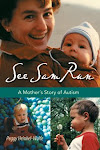I like to tell people that my writer’s life has traveled a reverse trajectory of the typical writing career. I started with a prestigious public relations job. Then I won a book contract. Finally, at age 45, I got my first writing job, reporting at a small newspaper.
But I’ve loved good stories my whole life. At Byron Kilbourn Elementary School in Milwaukee, I devoured books. I discovered Beverly Cleary, with Beezus and Ramona. After that, I read every Cleary book I could. Soon I was reading mysteries and coming-of-age books and the Green Sheet inside the Milwaukee Journal.
I liked to write, too, and I think I grew into a decent writer in high school. My English teacher at New London Senior High School said that she’d take three after grading my attempt at advertising copy for a new car. The Milwaukee Journal published a letter to the editor I wrote based on my oratory speech about artificial food dyes. And my senior class put on the skit I wrote for the 1978 Homecoming – a Star Wars parody.
But music was my first love, so that would be my first career. I dabbled in writing music as an undergraduate at North Texas State University – both electronically and the old-fashioned way, with pen and paper – but I loved performing best. I got my master’s degree in euphonium performance and literature from the Eastman School of Music in 1984. Although my husband, Mark, was a professional tuba player, he said he couldn’t think of anything more useless than a degree in euphonium performance.
And that’s how I came to have a day job in grant writing and public relations.
When it was time to retire the euphonium altogether because TMJ got the best of me, I wondered whether I could trying writing more than grants and press releases and alumni newsletters – and our family’s Christmas newsletter.
I’m afraid I wasn’t very imaginative at first. I thought I could stretch far enough to become a music critic, since I’d written a few pieces over the years for trade journals. In 2000, I enrolled in the Mayborn Graduate Institute of Journalism at the University of North Texas. Journalism jobs were plentiful. My first offer for freelance work that year came from the Fort Worth Star-Telegram, which needed a visual arts critic. Later, I would write theater reviews, too. The following year the Denton Record-Chronicle offered me restaurant reviews.
In order to write informed criticism, I had to read a lot and stretch my thinking. I enjoyed the creative writing assignments in journalism school, too. Essays I wrote for my literary journalism class planted the seeds for what would become my first book.
But I’d set out to become an arts critic.
The bottom fell out of the journalism business while I was in school. I graduated in 2002 with a master’s degree in journalism and couldn’t find a job anywhere. From watching Mark and his successful freelance career, I knew how to get better and better freelancing work. Some of my newspaper stories were honored by the National Association of Black Journalists, the American Heart Association and the Association of Women in Journalism. I wrote for arts and travel magazines, and regular features in Texas Highways. But we were going broke.
I figured I might as well start writing a book. And bit by bit, the story of our family and its first, tortuous years began to take shape.
My family hardly knew I was working on the manuscript. I spent the quiet hours while the kids were in school and Mark was at work writing, revising and polishing. When I was happy with one particular part, I extracted an essay from it and – on a whim – submitted it to a literary journal, Windhover, published by the English Department at the University of Mary Hardin-Baylor.
It was accepted.
In the years that followed, I was not successful finding an agent or publishing company to consider my book proposal. I’ve kept all those rejections letters somewhere. On top of that pile is one that opens “Dear Ms. Heinkel-Wolfe” and immediately follows with “Oh, how I hate hyphenated names!”
Mark said he couldn’t stand it anymore, so I went to work briefly, for the University of North Texas, writing for their Web site. My nascent writing career seemed doomed.
In 2005, the Mayborn Institute launched its literary nonfiction conference. The Institute’s writer-in-residence, George Getschow, told me that it would include a manuscript workshop. Unlike other conferences, George promised that writers would be nice to one another as they critiqued each other’s manuscripts. I liked that. My manuscript needed help. I didn’t want my heart to be shredded trying to advance my work. Mark and I had enough of the judgmental stares and cruel criticisms raising our son with autism. George told me that UNT Press would publish the winning manuscript, too. I didn’t give that much thought.
Until I won.
Six months later, I finally landed my first writing job – as area reporter and special projects writer for the Denton Record-Chronicle.
Today, I am a writer. Our fast-growing county is under siege, and with the development of natural gas in the Barnett Shale, I have a plethora of things to write about. The Society of Environmental Journalists selected a five-part series written by Lowell Brown and me as the best in its class last year. My work is read and critiqued daily. I sit within mumbling distance of Mike Trimble, one of the finest editorial writers in the country. And on days off, people ask me about my book and how it’s doing.
I might have birthed it backwards, but it’s a writer’s life all right.





